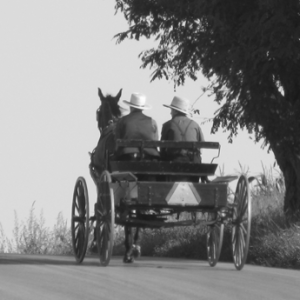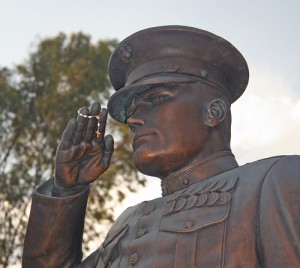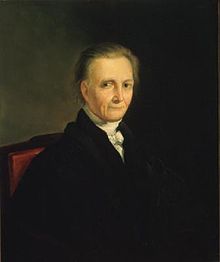Menu
Hot-Topics
February 19, 2026 | SCOTUS Reaffirms Fourth Amendment Standard for Police Responding to Household Emergencies
Home » Historical










Historical

United States v. E.C. Knight: Court Upholds Sherman Anti-Trust Act
In United States v. E.C. Knight, 156 U.S. 1 (1895), the U.S. Supreme Court held that the Sherman Anti-Trust Act was a valid exercise of Congress’ power under the Commerce Claus...

Wisconsin v. Yoder: Compulsory Education Violates First Amendment
In Wisconsin v. Yoder, 406 U.S. 205 (1972), the U.S. Supreme Court held that a Wisconsin law mandating that children attend school violated the First Amendment. In the landmark d...

Mapp v. Ohio: Use of Evidence Under the 4th Amendment
In Mapp v. Ohio, 367 US 643 (1961), the U.S. Supreme Court ruled that evidence obtained through a search in violation of the Fourth Amendment could not be used as evidence in a s...

Korematsu v. United States: National Security Outweighs Individual Rights
In Korematsu v. United States, 323 U.S. 214 (1944), the U.S. Supreme Court upheld an Executive Order that banned American citizens of Japanese descent from certain areas in the n...

Washington v. Davis: Discriminatory Purpose & Effect
In Washington v. Davis, 426 U.S. 229 (1976), the U.S. Supreme Court established that racially discriminatory laws are only unconstitutional if they have both a discriminatory pur...

Buckley v. Valeo: Campaign Finance Laws and the First Amendment
In Buckley v. Valeo, 424 U.S. 1(1976), the U.S. Supreme Court held that while campaign contribution limits implicate First Amendment interests, they withstand constitutional ...

Charming Betsy and the Law of Nations
In Murray v. Schooner Charming Betsy 6 U.S.64, 2 L.Ed.208 (1804), Chief Justice John Marshall stated that “an act of Congress ought never to be construed to violate the law...

Talbot v. Seeman: The Power to Declare War
In Talbot v. Seeman, 5 U.S. 1 (1801), the U.S. Supreme Court considered the circumstances under which salvage rights attach to a neutral vessel, captured by enemy forces, and t...

Barron ex rel. Tiernan v. Mayor of Baltimore: The Limits of the Bill of Rights
In Barron ex rel. Tiernan v. Mayor of Baltimore, 7 Pet. 243 (1833), the U.S. Supreme Court held that the Bill of Rights placed limits on the national government and not on state...

Corfield v. Coryell: The Privileges and Immunities Clause
In Corfield v. Coryell, 6 F. Cas. 546 (1823), Supreme Court Justice Bushrod Washington interprets the Privileges and Immunities Clause of Article 4, Section 2 and articulates...
Previous Articles
SCOTUS Decision in Bowe v. United States Is First of the 2026 Term
by DONALD SCARINCI on February 5, 2026
In Bowe v. United States, 607 U.S. ___ (2026), the U.S. Supreme Court held that Title 28 U.S.C. § ...
SCOTUS Rules State Can’t Immunize Parties from Federal Civil Liability
by DONALD SCARINCI on January 29, 2026
In John Doe v. Dynamic Physical Therapy, LLC, 607 U.S. ____ (2025) the U.S. Supreme Court held that...
Supreme Court to Address Racial Discrimination in Jury Selection
by DONALD SCARINCI onWhile the U.S. Supreme Court has concluded oral arguments for the year, it continues to add cases t...
The Amendments
-
Amendment1
- Establishment ClauseFree Exercise Clause
- Freedom of Speech
- Freedoms of Press
- Freedom of Assembly, and Petitition
-
Amendment2
- The Right to Bear Arms
-
Amendment4
- Unreasonable Searches and Seizures
-
Amendment5
- Due Process
- Eminent Domain
- Rights of Criminal Defendants
Preamble to the Bill of Rights
Congress of the United States begun and held at the City of New-York, on Wednesday the fourth of March, one thousand seven hundred and eighty nine.
THE Conventions of a number of the States, having at the time of their adopting the Constitution, expressed a desire, in order to prevent misconstruction or abuse of its powers, that further declaratory and restrictive clauses should be added: And as extending the ground of public confidence in the Government, will best ensure the beneficent ends of its institution.
Awards





